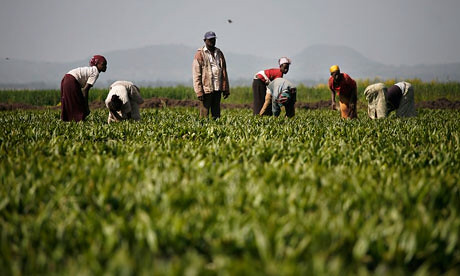New directives on access rights to land, fisheries and forests show constructive collaboration on food security is possible
The endorsement of voluntary guidelines to improve the way countries govern access rights to land, fisheries and forest resources by the Committee on World Food Security (CFS) on Friday marks a historic milestone not only for the way in which land tenure is managed, but also for international consensus-building.
The eradication of hunger depends in large measure on how people, communities and others have access to, and manage, land, fisheries and forests. Pressure on these resources, and on tenure arrangements, is increasing as new areas are cultivated to provide food for a rapidly growing population, urban areas expand, and as a result of environmental degradation, climate change and conflict. Rural landlessness is often the best predictor of poverty and hunger. Moreover, insecure tenure rights can lead to instability and conflict when competing users fight for control of these resources.
Weak governance of tenure hinders economic growth and the sustainable use of the environment. Small-scale farmers and traditional communities will not invest in improving their land, fisheries and forests if they could betaken away at any minute due to lack of recognition of customary rights, weak registration practices or corruption. In some countries, women, for example, despite doing all the farming, are denied legal recognition and protection of rights to their land plots.
The voluntary guidelines on the responsible governance of tenure of land, fisheries and forests in the context of national food security set foundations that are indispensable to resolve these issues. Responsiblegovernance of tenure enables sustainable social, economic and environmental development that can help eradicate food insecurity and poverty, and encourages responsible investment. More
